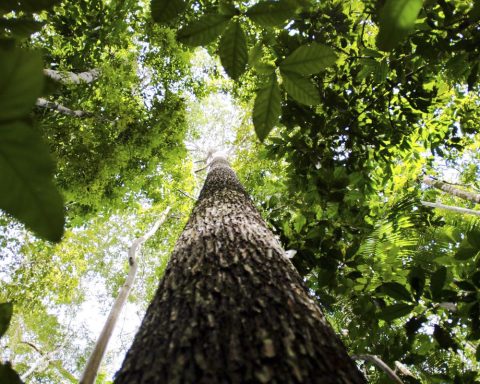Since the beginning of May, an unusual increase in cases has been detected outside the countries of Central and West Africa where the virus is endemic, spreading throughout the world, with a high number of infections in Europe.
At the first meeting on June 23, the majority of experts from the WHO emergency committee recommended that the director general, Tedros Adhanom Ghebreyesus, not declare a public health emergency of international scope.
On Thursday, Tedros expressed “his concern” about the rising number of monkeypox cases during the opening of the emergency committee meeting, asking experts for advice on whether or not the disease warrants the highest alert level.
“I need your advice to assess the immediate and long-term implications for public health of the evolution” of this situation, said Tedros Adhanom Ghebreyesus, who “remains concerned” about the spread of the disease.
It is he who bears the responsibility of declaring a public health emergency of international scope, the highest level of alert of the World Health Organization.
Tedros asked the experts for “information and advice” to make a decision, declaring himself “fully aware” that this “involves considering many factors.”
This emergency committee is going to evaluate the epidemiological indicators after 15,300 cases have been registered in 71 countries in recent weeks, according to figures from the Centers for Disease Control and Prevention (CDC), the United States public health agency.
But there is no precise timetable for the committee to publish the results of the meeting.
“Regardless of the committee’s recommendation, the WHO will continue to do everything possible to stop monkeypox and save lives,” Tedros told a news conference on Wednesday.
First detected in humans in 1970, monkeypox is less dangerous and contagious than its cousin smallpox, eradicated in 1980.
– “Complete trust” –
As of July 18, the European Center for Disease Prevention and Control (CEDC) recorded 7,896 monkeypox virus infections.
Spain is the most affected country, with 2,835 cases, followed by Germany (1,924), France (912), the Netherlands (656) and Portugal (515).
According to a New England Journal of Medicine study of 528 people in 16 countries (the largest to date), 95% of cases were spread through sexual activity.
98% of infections are homosexual or bisexual men, and about a third had had sex at parties or in saunas the previous month.
However, the infection “can be transmitted through any close physical contact,” lead author John Thornhill warned in a statement. The study also proved that “most cases were mild and cured without treatment.”
“The community that is currently affected is one of the most committed, powerful and responsible that we have, and that worked so hard for years to control an even more deadly virus (HIV)”, for which he has the “full confidence” of the WHO, the organization’s head of emergencies, Michael Ryan, stressed on Wednesday.
The WHO works closely with civil society and LGBT+ communities to facilitate the spread of information about the disease, especially in terms of organizing summer festivals and pride marches.
“These are important identity celebrations: it is very important that these places, these events and activities share information so that people protect themselves,” added Dr. Lewis.
– Few vaccinations –
The health agency works in parallel with member states and experts to advance research and development around the virus.
“Although we see a downward trend in some countries, others are facing an increase and six countries recorded their first cases last week,” Tedros said.
“Some countries have less access to diagnostics and vaccines, making it difficult to record and stop cases” when vaccine stocks are low, he added.
The Danish company Bavarian Nordic, the only laboratory that produces an authorized monkeypox vaccine, reported Tuesday that it received an order for 1.5 million doses, mostly to be supplied in 2023, from an unnamed European country. leaked, and the United States has already ordered an additional 2.5 million doses.
The entrance WHO assesses whether monkeypox merits maximum alert level was first published in diary TODAY.


















